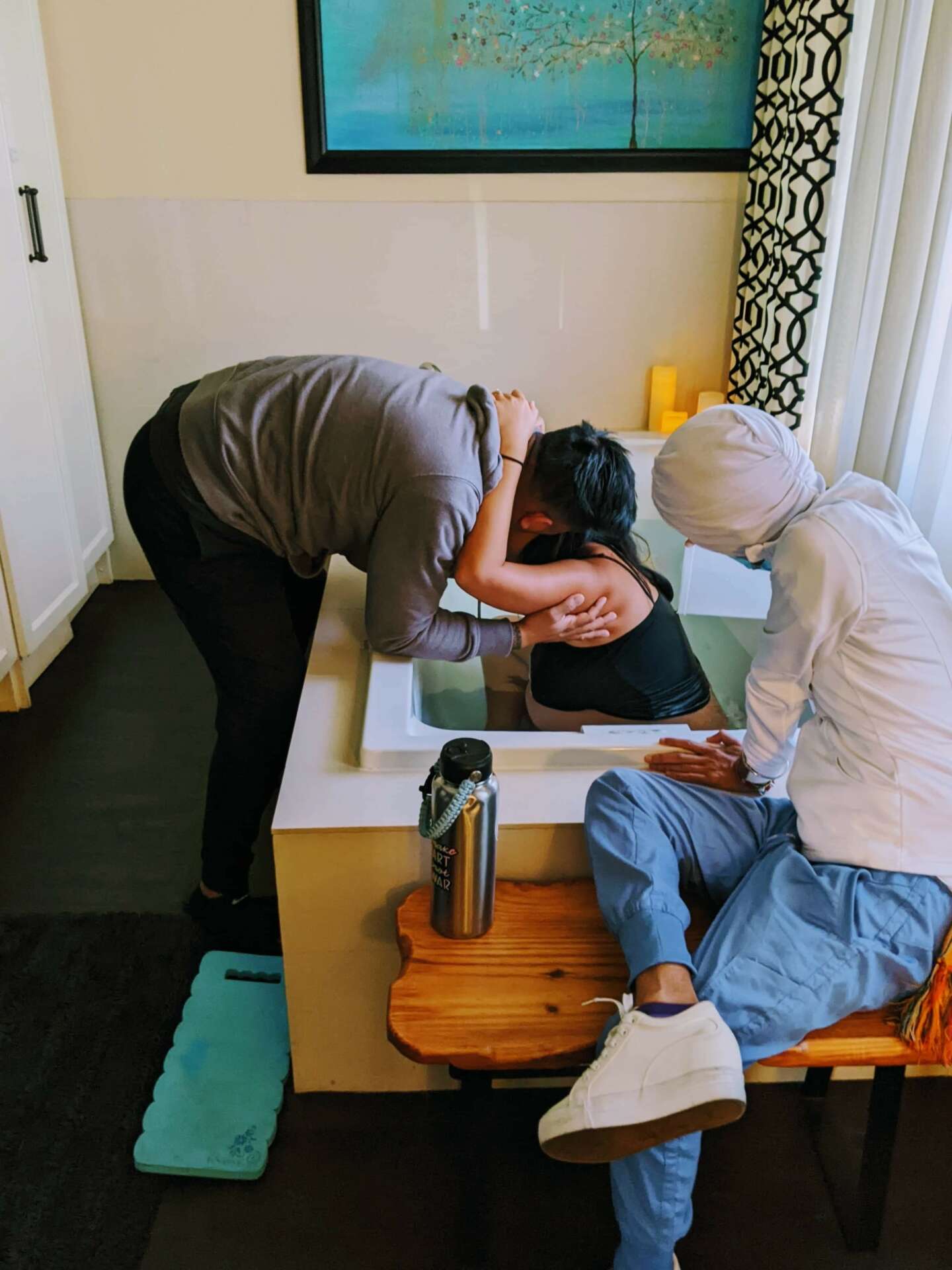We were lucky to catch up with Stevie Merino recently and have shared our conversation below.
Stevie, thanks for joining us, excited to have you contributing your stories and insights. We love heartwarming stories – do you have a heartwarming story from your career to share?
The most heartwarming stories from my work as a doula have been watching my doula babies grow and clients turning into friends. Last year was the opening of our community art exhibit hosted by birthworkers of Color x SovernLA called, “Ceremonies: Pregnancy, birthwork, and life” and I got the sweetest photo of some doula babies and former clients– two of which were featured artists! It’s already such a blessing to have the honor to support people in such an intimate time in their lives as pregnancy, birth, postpartum but to be able to continue to foster those relationships beyond is truly heartwarming. I hold all of my clients so closely in my heart and wish all of the good things for them, whether our relationship ends after my services are complete or if we continue to be in community. Another that stands out is being fed cultural foods by families I work with, eating and being fed is such a cultural way of showing love, and my heart bursts when people share and break bread with me. The last one is clients sharing my name in rooms and opportunities, hearing referrals or kind words about their time working with me, is so heartwarming and kind. My clients are truly the best!

Awesome – so before we get into the rest of our questions, can you briefly introduce yourself to our readers.
My name is Stevie Merino (she/her), I am the owner of Sol and Roots, LLC which provides a variety of perinatal health and advocacy services including: speaking engagements, consulting and trainings, lactation consultations and education (IBCLC), full spectrum doula services, and more.
I am also the Executive Director, and co-founder of Birthworkers of Color Collective and the facilitator of our doula of Color training. We are an organization of birthworkers, doulas, health professional, activists, and more who are committed to reproductive health, providing culturally relevant care and support to our communities, and supporting all pregnancy and postpartum outcomes. We train new doulas of Color, provide inclusive and accessible doula services, organizing and advocacy efforts around reproductive justice, host community wellness events, and are committed to helping decrease the overwhelming maternal and infant health disparities that disproportionately impact Black and Brown people.
I also speak & present around the country on perinatal health disparities, experiences, and traditions of communities of Color with a special focus on reproductive justice/lactation/LGBTQ+/Pacific Islander communities/and birthworkers of Color. I’ve been featured in anthologies, articles, academic journals & books on doing frontline birthwork during the height of covid-19, abortion as healthcare, QTPOC birth & lactation, & more.
As a living arts practitioner, I push to take up space & reclaim the oral traditions, talk story & traditional healing as part & parcel of the arts. I have also curated two exhibits highlighting pregnancy, healing, & birthwork including one at the Pacific Islander Ethnic Art Museum based on my master’s research, an exhibit that was the 1st of its kind, entitled “Carrying the Pacific: Pregnancy, Birth, & Parenting.”
I sit on various leadership positions in the community, birthwork, and academia. My work is all interconnected and purposeful. With the intention of bringing this work to the forefront of as many spaces as possible and creating more visibility around it.
Anyone who wants one, deserves a doula! As an anthropologist, I can tell you that while doulas are becoming more recognized in the mainstream, doulas are not new age or for a select privileged few, they are sacred and have existed throughout time and cultures. We hear the saying it takes a village, a doula is the start of that!

Other than training/knowledge, what do you think is most helpful for succeeding in your field?
I think building a strong community is the most important to truly be successful in birthwork. This is not work that should be done in isolation or competition, there are thousands of people becoming pregnant, birthing, and postpartum everyday. This work is also not always easy and being an entrepreneur has many difficulties so a community of support, guidance, and shared skill set to learn from is priceless.
Collaborating and creating what I wanted to see was what really pushed my success in this field. Having confidence in my abilities and leaning on my ability to be empathetic and calm, to advocate, to navigate the health system, and have a community of peers I could refer out to, ask questions of, and trust in their knowledge is something that has been invaluable for me.

Any stories or insights that might help us understand how you’ve built such a strong reputation?
As a long time community organizer and activist, one of the important tenants I learned was the intersectionality and interconnectedness of identities, issues, and struggles. As Audre Lorde said ‘There is no thing as a single-issue struggle because we do not live single-issue lives.” I believe in showing up in solidarity whether something impacts you or not is important for change and community building. In this work, I have always tried my best to show up however I could across identity, issue, and support different birthworkers and communities doing important work. I have also tried to be intentional around who I work with and support and make sure that they are in alignment with the way that I do this work and that ultimately we have a shared vision. This hasn’t always been the easy choice but I believe it has helped me stay in alignment and ultimately longevity in this work.
Contact Info:
- Website: solandrootsdoula.com birthworkersofcolor.com
- Instagram: @solandrootsdoula @birthworkersofcolor
- Linkedin: https://www.linkedin.com/in/steviemerino/
Image Credits
“Rest” photo: art by Jason Pereira, photo by Roz Kumari


